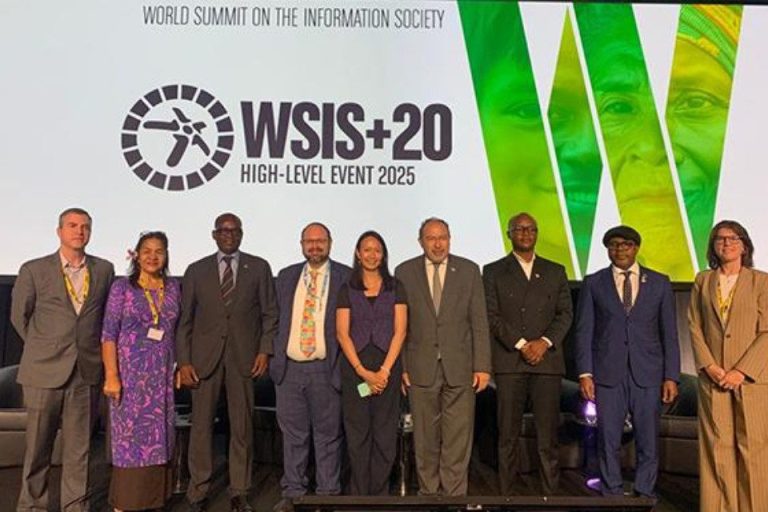The Broadband Commission Working Group on Data Governance, co-chaired by United Nations Educational, Scientific, and Cultural Organisation (UNESCO), United Nations Development Programme (UNDP), International Telecommunication Union (ITU), and the African Union (AU), has officially launched a data governance toolkit at the World Summit on the Information Society (WSIS)+20 High-Level Event, held in Geneva, Switzerland.
Titled “Data Governance Toolkit: Navigating Data in the Digital Age,” the toolkit is a practical and adaptable resource designed to equip policymakers, regulators, and data practitioners with tools to implement inclusive, rights-based, and future-ready data governance frameworks.
The launch highlighted the central role of data governance in supporting key WSIS Action Lines, including the role of governments and all stakeholders in promoting ICTs for development, capacity building, creating an enabling environment, and fostering international and regional cooperation.
Opening remarks were delivered during the launch by Mr Tawfik Jelassi, UNESCO’s Assistant Director-General for Communication and Information; Ms Sulyna Abdullah, Executive Director, Broadband Commission, ITU; and Ms Yuping Chan, Head of Digital Partnerships and Engagement, UNDP.
Emphasising the relevance of the Toolkit to global digital transformation efforts, Mr Jelassi, in his address said, “This Toolkit is more than just a resource; it serves as a framework for actionable change. It lends practical support to the political impetus required to accelerate international cooperation and tackle the critical challenges of data governance on a global scale. At UNESCO, we see data governance as a cornerstone of digital cooperation and AI governance, including all emerging technologies that shape our societies and economies.”
The panellists at the launch reflected on national strategies, regulatory gaps, and how the Toolkit can help bridge the gap between global guidance and country-level implementation, particularly in advancing equity, transparency, and data quality in digital governance.
The Toolkit, which was co-developed by UNESCO, UNDP, ITU, and the African Union Commission, reflects input from institutional members, including Smart Africa, Singapore’s Infocomm Media Development Authority (IMDA), GSMA, and the Digital Cooperation Organisation, alongside contributions from global experts and practitioners.
Designed for real-world application, the Toolkit provides actionable frameworks and legal guidance; self-assessment tools and curated resources; and guidance on privacy, cross-border data flows, data self-determination, and institutional capacity building. It promotes a human rights-based, gender-sensitive, and inclusive approach, crucial for effective AI governance and equitable digital development.
Beginning from Quarter 4 of the year 2025, UNESCO and its partners will support pilot projects, regional dialogues, and capacity-building programmes; national-level adaptations, including a planned G20 Data Governance Toolkit version to support the G20 South African Presidency; and translations into Arabic, Chinese, French, Portuguese, and Spanish to expand access and uptake.
As a living resource, the Toolkit will continue to evolve, drawing on stakeholder feedback, implementation insights, and emerging trends to remain relevant and impactful in shaping ethical, inclusive, and future-ready data governance systems.
Download the Toolkit here.





